Nature Knows and Psionic Success
God provides
A Snack That Makes You Smarter?

If you asked ten random people if they’d like to feel more focused and clear-headed on a daily basis, chances are not one of them would say, “Nah, I’m good.” Everyone wants to improve their cognition and brain function, because we all want to be the best version of ourselves. Unfortunately, while everyone might want improved brain function, most of us aren’t actively taking steps toward achieving it. But that’s where TruBrain Nootropic brain food comes in. Created by a team of UCLA-trained neuroscientists, TruBrain nootropic snack bars and drinks are meticulously engineered to improve focus, enhance verbal fluency, and boost mental output. This high-powered “brain food” provides your mind with exactly what it needs to help you remember more and create faster. What allows TruBrain to do all this is its special blend of brain-augmenting compounds called nootropics. Though they are sometimes referred to as smart drugs or cognitive enhancers, nootropics are not magic. They are merely specific amino acids, nutrients, and minerals that act as fuel for neurotransmission. Nootropics are found in a variety of whole foods such as spinach, artichokes, and kale, but only in small quantities that don’t impact brain function. TruBrain remedies this problem by delivering an effective dose of nootropics that have a proven track record. You want specifics? Here’s a rundown of the key ingredients: Citocoline (250mg): a nootropic compound that the body turns into choline, a neurotransmitter which boosts learning and ability to focus. Uradine (500mg): a neucleotide and a building block of RNA that enhances your brain’s ability to store memories. Centrophenoxine (250mg): a cholinergic compound that contains DMAE, a type of choline that reduces “age pigmentation,” or waste product build-up in the brain.*Noopept (12mg): a synthetic molecule that increases blood flow to the brain. Caratine (500mg): a key raw […]
Natural Ways to Balance Your Brain Chemistry
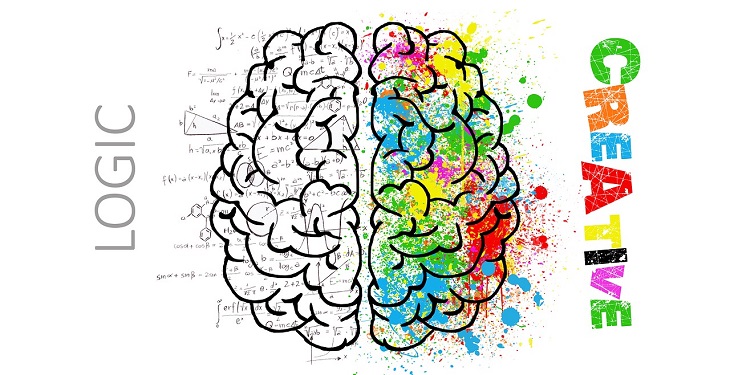
It’s in human nature to feel sadness. Every life is filled with ups and downs, tragedy and comedy, kindness and cruelty. It is a part and parcel of who we are and an important part of our journey. But for some people, the struggles often don’t end with the event that triggered the sadness. Nowadays, more and more people are suffering from depression and other mental ailments, at young ages also, and the explanation goes well beyond a singular circumstance, or an individual’s inability to be happy or find strength. In fact, most mental health problems that people face can be understood from a purely chemical standpoint. The brain is essentially the chemical factory of the body, producing all the hormones that keep our bodies growing and sending out all the messages to keep our limbs moving. So its only natural that in some cases, this factory might face some difficulties while doing its job. After all, we are only beings of flesh, blood and imperfection, not machines. But those imperfections are what give us the drive, the endurance and the passion to persevere against all odds and struggle even through the toughest of times. That, and television. With that brief moment of levity over, let’s get back to the topic at hand. What are some of the mental health problems that are now becoming more and more commonplace? Well, there’s depression. We already covered that. There are various types of depression as well. One of the more severe ailments that some people face is Bipolar Disorder, usually marked by intense and often uncontrollable periodic mood swings and personality shifts. Anxiety and frequent panic attacks can also be extremely disruptive, and can affect a person’s ability to function normally and interact with other people. There are also a large […]
Global warming a total “hoax and scam” run by corrupt scientists, warns Greenpeace co-founder

( Natural News ) Though the organization today is among the most outspoken when it comes to drumming up mass hysteria over “global warming” and “climate change” – its homepage currently has a pop-up urging visitors to sign a petition to “Tell Congress to Push for a Green New Deal” – Greenpeace wasn’t always a shameless advocate for junk science . In fact, the co-founder of Greenpeace Canada, Patrick Moore, recently spilled the beans during an interview on SiriusXM’s Breitbart News Tonight , explaining that not only is global warming completely fake , but that it’s also being used by social engineers around the world – including Greenpeace – to fear-monger the public in to giving up their rights and freedoms. Speaking with hosts Rebecca Mansour and Joel Pollak, Moore held nothing back in revealing fear and guilt are being used as conversion tactics to draw more followers into the Cult of Climate Change – the endgame being to siphon as much cash from people as possible in order to implement a globalist system of governance in which nobody will be allowed to drive big cars, eat meat, use plastic, or in any other way “harm” the planet. “Fear has been used all through history to gain control of people’s minds and wallets and all else, and the climate catastrophe is strictly a fear campaign – well, fear and guilt – you’re afraid you’re killing your children because you’re driving them in your SUV and emitting carbon dioxide into the atmosphere and you feel guilty for doing that,” Moore explained during his interview. Support our mission and protect your health: Organic Seeds of Life combines Red Raspberry Seed Power, Black Cumin Seed Power and Red Grape Seed Powder into the most potent nutrient-rich supplemental superfood powder you’ve ever experienced. […]
The Hormone That Stops Alzheimer’s

Athletes know that a vigorous workout can lead to “runner’s high.” This is a feeling of euphoria you get when exercise-activated brain chemicals boost your mood. For years, researchers attributed runner’s high to hormones called endorphins. But new research shows that exercise produces another hormone. It may have more profound effects than endorphins. It improves memory and may protect against Alzheimer’s disease. It’s called irisin . Our bodies release it into the bloodstream when we’re active. It seems to play a role in energy metabolism. But researchers have found it also promotes the growth of neurons in the hippocampus. That’s a region of the brain responsible for memory and learning. Dr. Ottavio Arancio is a researcher at Columbia University’s Vagelos College of Physicians and Surgeons and the Taub Institute for Research on Alzheimer’s Disease and the Aging Brain. He co-led the new study. [1] Dr. Arancio said research on irisin “may help explain why physical activity improves memory.” It may also point to why exercise “seems to play a protective role in brain disorders such as Alzheimer’s disease.” [2] The study was done in three parts: Scientists first examined tissue samples from brain banks. They found that levels of irisin in the hippocampus are lower in people with Alzheimer’s. The team then determined what irisin does to the brain. Experiments with mice showed that the hormone protects nerve connections and memory. When the scientists disabled irisin, brain synapses and memory suffered. When they boosted irisin levels, brain health markers improved. Lastly, the researchers analyzed how exercise affects irisin and the brain. They injected beta-amyloid into mice. Beta-amyloid is a protein that interferes with neurons and causes Alzheimer’s. They had the mice exercise by swimming almost every day for five weeks. Despite having the brain-damaging protein, the mice did not […]
Science Explains: study drugs
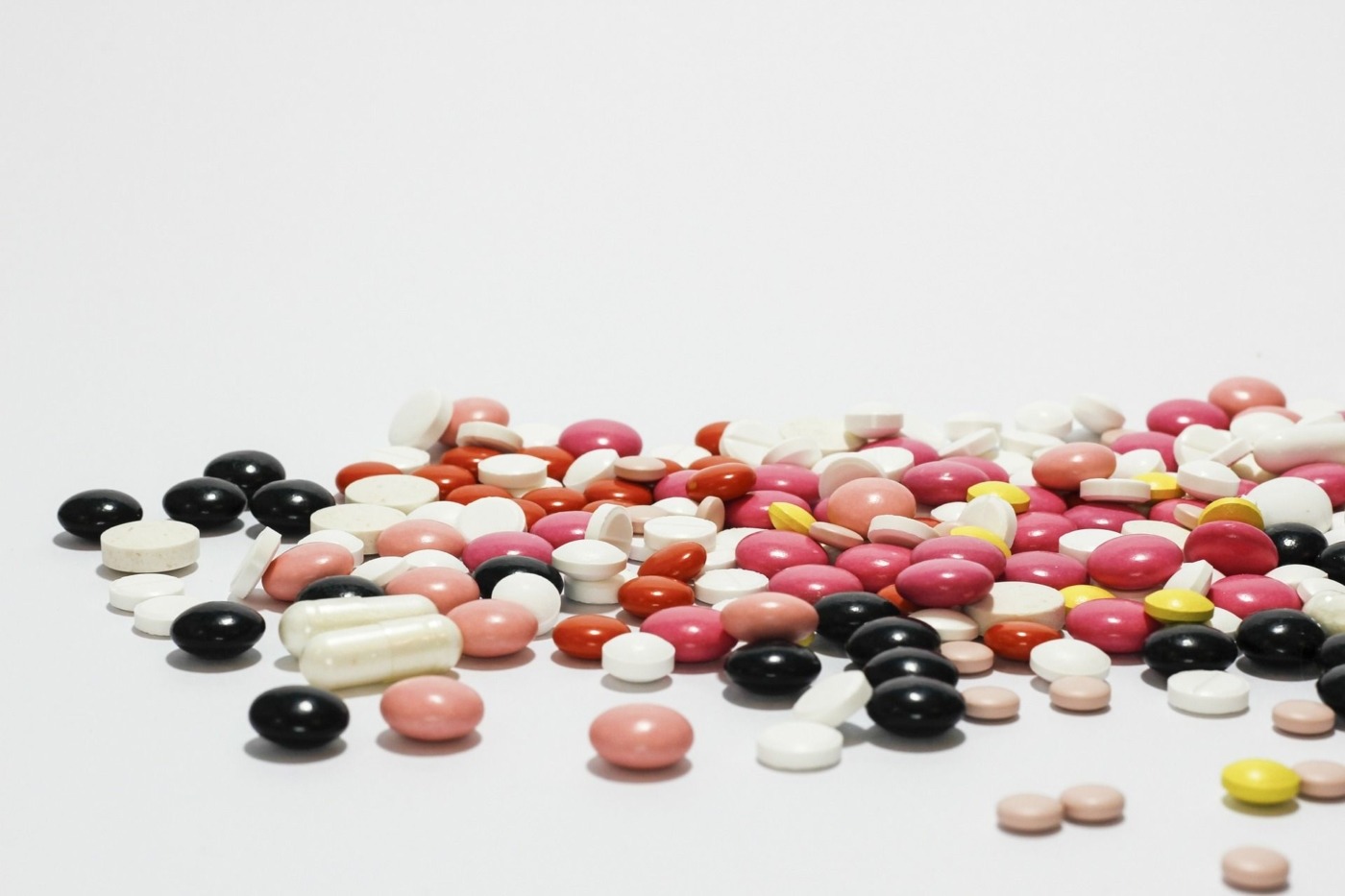
tudy drugs, scientifically known as nootropics, are substances which improve cognitive function, in particular executive functions like concentration, memory, and motivation, and are used for the purpose of studying or cramming. These drugs are often the same ones used in medicine to treat sleep disorders, Attention Deficit Disorder (ADD) and Attention Deficit Hyperactivity Disorder (ADHD) which affect attention span, self-discipline, impulse control, and, in the case of ADHD, hyperactivity. Therefore, the use of these substances by healthy individuals sparks controversy and raises issues on the ethic and fairness of their use – as well as concerns over their adverse effects. In the UK, typical study drugs like Ritalin, Adderall, Concerta, and Focalin cannot be purchased legally over the counter in a pharmacy. The Psychoactive Substances Act of 2016 introduced regulation of all psychoactive substances, which includes study drugs – meaning these substances could no longer be purchased without a prescription. But, in recent years the number of cheap online pharmacies has grown exponentially, selling these cognitive enhancers, or nootropics, in bulk. The international sales of nootropic substances and supplements exceeded $1 billion in 2015. Despite their illegal status, it is estimated that in 2016 alone, around 10-15% student worldwide used study drugs, with the percentage in the UK specifically reaching as high as 37% at some universities. What’s shocking is that it isn’t just students using these substances, as a poll among the readers of the scientific journal Nature , mostly comprised of academics, revealed that approximately 20% reported having taken a pharmaceutical “cognitive enhancing drug” to stimulate focus, memory, or concentration. Prescription stimulants, or study drugs, can be separated into two classes: amphetamines, (such as Adderall, Dexedrine, and Vyvase) and methylphenidates (such as Ritalin, Concerta, and Modafinil). Both of these classes of substances work in a very similar […]
Toxic foods that may cause dementia

( Natural News ) Your physical and mental health are closely intertwined. If you follow a healthy diet, you can significantly improve your overall well-being. Conversely, if you follow a diet full of processed food and soda, you will increase your likelihood of getting dementia , according to multiple studies. Consuming a lot of complex carbohydrates, processed foods, and sugar stimulates the production of toxins in the body. These toxins can then cause a buildup of plaque in the brain, which may cause inflammation. Experts believe chronic inflammation is often linked to disorders such as dementia . Junk food and dementia Sadly, not many people realize the importance of a healthy diet. When you eat lean meat, nuts, fresh fruits and vegetables, and seeds, you can boost your heart health, lower the risk of conditions like cancer and diabetes, manage blood pressure, and prevent various illnesses. On the other hand, poor nutrition can negatively affect your memory and increase your risk of developing dementia and Alzheimer’s disease . According to several studies, which were published in the journals Alzheimer’s & Dementia and Stroke , individuals who often consume sugary beverages tend to have poorer memory. The researchers also warned that these people can also have smaller brain volume and a smaller hippocampus, the an area of the brain that is crucial for learning and memory. (Related: Elevated blood sugar levels have a DIRECT relationship with brain shrinkage .) Additionally, a follow-up study about diet soda and dementia revealed that individuals who consume diet soda daily were three times more likely to develop stroke and dementia when compared to those who did not. The power of the elements : Discover Colloidal Silver Mouthwash with quality, natural ingredients like Sangre de Drago sap, black walnut hulls, menthol crystals and more. Zero […]
Why you need Brain Supplements and Nootropics
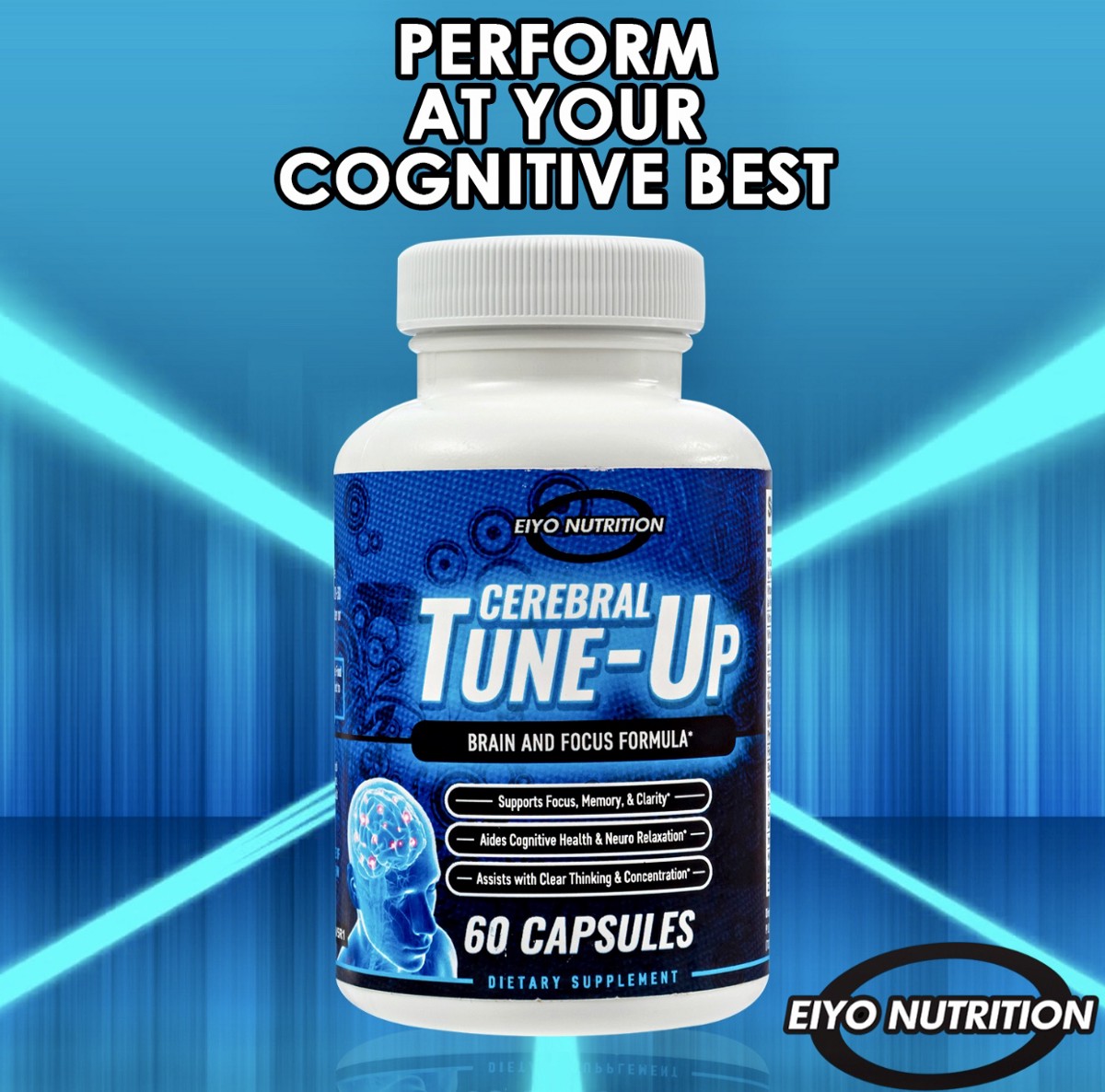
Why you need Brain Supplements and Nootropics Eiyo Nutrition Feb 15 There is a special feeling of self-satisfaction you get from being able to recall names and numbers faster, having a strong mental energy that can last you all through the day, and being able to combine learning new skills and information faster when you are retaining new information! The brain is the control center for everything in our lives. It controls our physical body functions, emotions, thinking, work, and relationships. If you can take a simple pill and improve all these areas in your life, it would change everything. Indeed, there is a substance that can help boost your brain and its functions, and that substance is called NOOTROPICS or BRAIN SUPPLEMENTS . In this article, we are going to address the meaning of nootropics and brain supplements, what you should look out for, the characteristics, the benefits, how to start improving your life with nootropics and the best brain supplement on the market today. What are Nootropics? Generally called brain supplements, nootropics are any functional foods, supplements, nutraceuticals or drugs that can help improve your brain and mental functions. They are also known as brain boosters, smart drugs , or cognitive enhancers. Over the years, brain supplements and nootropics have become very popular because of their ability to improve the memory, attention span, mental energy and all aspects of human thinking. Characteristics of Brain Supplements and Nootropics They have extremely low toxicity and very few side effects. They enhance the efficiency of the functions of the brain. They improve the effects of learning and memory. They protect the brain against various physical and chemical injuries. They do not have the usual side effects like sedation or motor control loss of other psychotropic drugs. They enhance and improve […]
Don’t drink the water: The dark side of water fluoridation

( Natural News ) There are 7.7 billion people on this planet (as at March 2019). Only about 5 percent of them drink fluoridated water. Why? Because their governments recognize that fluoride in large amounts becomes a toxic chemical that is not fit for human consumption. The 328,000,000 citizens of the United States drink more fluoridated water than all other countries combined. Why? Because the U.S. government continues to doggedly insist that it is safe and improves dental health. But what do the facts say? As reported by Waking Times , dozens of peer-reviewed studies published in prestigious journals like The Lancet , have confirmed that fluoride is in fact toxic – especially to the developing brains of children. These chemicals are derived from unprocessed toxic waste which is not purified in any way before being pumped into the water supply. How could it possibly be anything but harmful? The history of water fluoridation in the United States So, what prompted the government to start adding something so obviously harmful to our precious water supply? Waking Times , quoting from an article by The Children’s Health Defense Team , explains a little about the history of this practice: During World War II, fluoride (a compound formed from the chemical element fluorine) came into large-scale production and use as part of the Manhattan Project. According to declassified government documents summarized by Project Censored, Manhattan Project scientists discovered early on that fluoride was a “leading health hazard to bomb program workers and surrounding communities.” In order to stave off lawsuits, government scientists “embarked on a campaign to calm the social panic about fluoride…by promoting its usefulness in preventing tooth decay.” Mother Nature’s micronutrient secret : Organic Broccoli Sprout Capsules now available, delivering 280mg of high-density nutrition, including the extraordinary "sulforaphane" and […]
Ten Foods and Drinks That Can Increase Your Brainpower
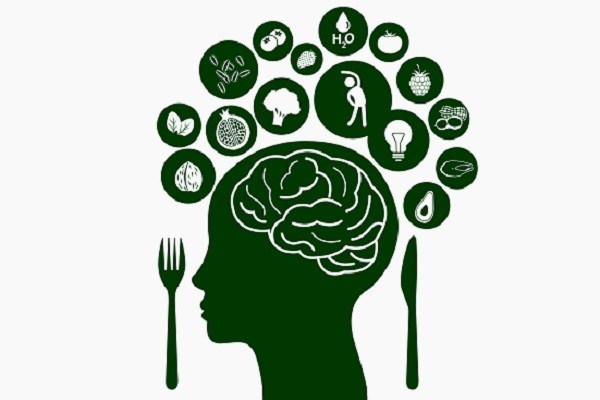
Ten Foods and Drinks That Can Increase Your Brainpower Do you have trouble remembering the names of people, or important numbers like your own phone number or pin number? Maybe its because you are eating the wrong foods! OK, so there could be a multitude of reasons, but what I do know for sure is that these ten foods and drinks can indeed help improve your brainpower and could help you remember more for longer. These foods might not help you win that pub-quiz, but they might help you think a little clearer… Brown Granary Bread It is important to make sure what type of bread you are buying with this. It will need to be as organic as possible and wholegrain so it contains as much glucose as possible as this is what will help your bloodstream flow better and that means clearer, faster thinking. Kippers While most fish is good for the old noggin it is fish with higher levels of essential fatty acids that really helps the brain function better. As with all fish the fresher it is the better for you it is. Blueberries They might be small and…well…blue, but they have also been proven to improve or even delay short term memory loss! This is thanks to the Blueberries high amount of anthocyanins which improve brain cell growth. Tomatoes It is said tomatoes can help prevent free radical damage which can lead to the development of dementia and even Alzheimer’s. They have high amounts of the powerful antioxidant called lycopene which as I said can prevent free radical damage. Eggs Some scientists believe simple organic eggs can actually help delay brain shrinkage in later life thanks to the high amount of B vitamins. Please note that this is not true for all eggs and […]
How to Stay Focused: Natural Supplements for Focus and Energy

In today’s fast-paced, screen-based society, it seems more common than ever for us to feel a lack of focus in life. Adults and children alike seem to suffer from an inability to stay on task. We can’t focus at work. We can’t focus on homework. Our eyes and attention flit from one source of stimulation to the next and we struggle to concentrate on the tasks at hand. Nutrients for Mental Focus, Concentration and Brain Power Just about everyone would love to have an edge when it comes to boosting brain power and knowing how to stay focused. And with an aging population, the US has seen greater interest in brain-boosting nutrients than there was just two or three decades ago. Truth is that certain vitamins, herbs and nutrients may help provide natural and powerful support for the nervous system under fire. Whether you seek greater focus and concentration, a memory boost, or just want to feel like you’re thinking at max capacity, it may pay to try ‘brain pills’ or brain supplements. The 15 Best Supplements for Mental Health Which brain supplements and natural therapies really help with memory, concentration and focus? These 15 nutrients aren’t magical, but they may help you answer the question, How can I stay focused? Ginkgo Biloba . The ginkgo tree is one of the oldest plant species alive, and its unique leaf is well-known worldwide for its fan shape and its health benefits. Several studies have examined ginkgo in conjunction with age-related mental decline, and it does help. Ginkgo appears to help thin the blood and may improve blood and oxygen flow to the brain, offering a brain boost. Studies have found that ginkgo can help with attention and memory. Note: Don’t take ginkgo if you use aspirin or prescription blood thinners. […]
7 Easy Biohacks for Beginners

Biohacking is a hot buzzword these days, people have attempted to improve their minds and bodies with technology, chemicals and behavioral modification for centuries. Some biohacking is rather invasive–changing your DNA or implanting magnetic chips into your fingers–but not all hacks are so extreme. Here are seven simple biohacks for beginners that are inexpensive (or even free) and proven to be beneficial. Meditation Meditation is known to boost productivity and cognitive function. Meditation is an ancient practice, essentially training your mind to focus on a single thought or activity. Practitioners claim it helps them feel calm, happy and mentally clear. Numerous government health bodies and psychotherapy groups have recommended meditation to combat anxiety and depression. It’s also purported to boost productivity and cognitive function, as well as lower blood pressure. Meditation has even picked up traction in the business world: "I am very interested in keeping a clear head," Salesforce.com CEO Marc Benioff told the San Francisco Chronicle . "So I enjoy meditation, which I’ve been doing for over a decade, probably to help relieve the stress I was going through when I was working at Oracle." How do you do it? There are a huge variety of meditation styles, but most involve the practice of mindfulness. Mindfulness meditation can be practiced sitting down and observing thoughts without judgement, but it can also be used when performing tasks—it just requires slowing down and drawing awareness to whatever you are doing, rather than letting your mind wander or go on autopilot. If you do catch yourself thinking of something else, don’t scold yourself—just return your focus back to the current moment. What does the science say? Meditation is known to affect the amygdala, the part of the brain that processes emotions. And results can be noticed even when practitioners aren’t […]
Compounds in coffee found to fight off Parkinson’s and Lewy body dementia

( Natural News ) Good news for coffee drinkers: U.S. researchers have found two compounds in coffee — caffeine and EHT — work together to prevent Parkinson’s and Lewy body dementia . Recently published in the journal Proceedings of the National Academy of Sciences , the findings suggest that these compounds may potentially be used as a natural way to slow brain degeneration. Earlier studies have shown that coffee consumption may lower the risk of developing Parkinson’s disease , and caffeine is generally known to be the protective agent. However, coffee beans have over a thousand other compounds that are less well-known. Therefore, the researchers of the current study explored other compounds in coffee beans; they focused on EHT (Eicosanoyl-5-hydroxytryptamide), which is a fatty acid derivative of the neurotransmitter serotonin found in the waxy coating of coffee beans. In an animal trial, they found that this compound protects the brains of mice against abnormal protein accumulation that is linked to Parkinson’s disease and Lewy body dementia . (Related: Coffee makes your brain younger: Research shows that by normalizing stress hormones, coffee reverses memory deficits .) “EHT is a compound found in various types of coffee but the amount varies. It is important that the appropriate amount and ratio be determined so people don’t over-caffeinate themselves, as that can have negative health consequences,” said M. Maral Mouradian, lead author of the study and director of the Rutgers Robert Wood Johnson Medical School Institute for Neurological Therapeutics. The power of the elements : Discover Colloidal Silver Mouthwash with quality, natural ingredients like Sangre de Drago sap, black walnut hulls, menthol crystals and more. Zero artificial sweeteners, colors or alcohol. Learn more at the Health Ranger Store and help support this news site. For the current study, U.S. researchers sought to determine […]
Athletes who want to boost their game are recommended to try beetroot
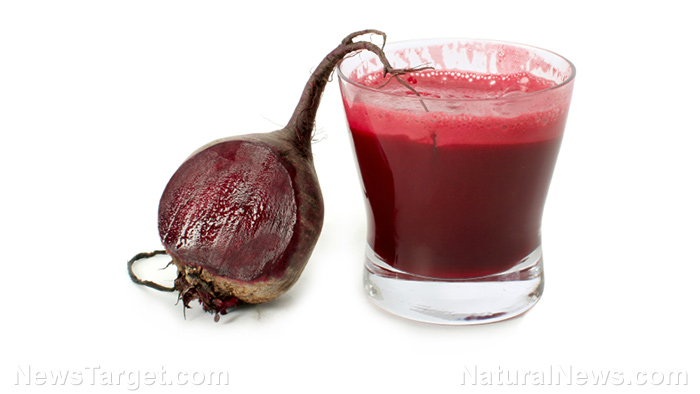
( Natural News ) Research shows that beetroot ( Beta vulgaris ) may improve both physical health and brain health . A review published in HerbalGram looked at the benefits of beetroot and how it may help support body systems, such as cardiovascular health and cognitive function. In recent years, beetroot has emerged as a promising exercise performance supplement ingredient. Beetroot contains many health-enhancing compounds, such as betaines, resveratrol, and quercetin. In addition, it is rich in nitrates, which have been the primary compound the studies in the review focused on. One of the studies reviewed, which was published in 2017, aimed to determine the effects of nitrate supplementation on physiological functioning and exercise performance in trained runners and triathletes during short- and long-distance time trials. Participants in this study consumed either nitrate-rich beetroot juice or nitrate-depleted beetroot juice after completing four exercise performance tests. The study, conducted by researchers from Leeds Beckett University and the University of Newcastle in the U.K., revealed that supplementation with nitrate-rich beetroot juice may be ergogenic, which means that it can enhance athletic performance. However, it was only effective during shorter-distance time trials at a high work rate and not during longer-distance time trials at a lower rate. Another study, which was conducted by researchers at Maastricht University in the Netherlands, examined at the effect of beetroot on high-intensity or intermittent-type exercise. The study examined whether a six-day nitrate-rich beetroot juice supplementation would improve exercise performance in trained soccer players. The power of the elements : Discover Colloidal Silver Mouthwash with quality, natural ingredients like Sangre de Drago sap, black walnut hulls, menthol crystals and more. Zero artificial sweeteners, colors or alcohol. Learn more at the Health Ranger Store and help support this news site. The results showed that consuming nitrate-rich beetroot juice […]
Koios Beverage Corp. Signs Vendor Agreement with Walmart
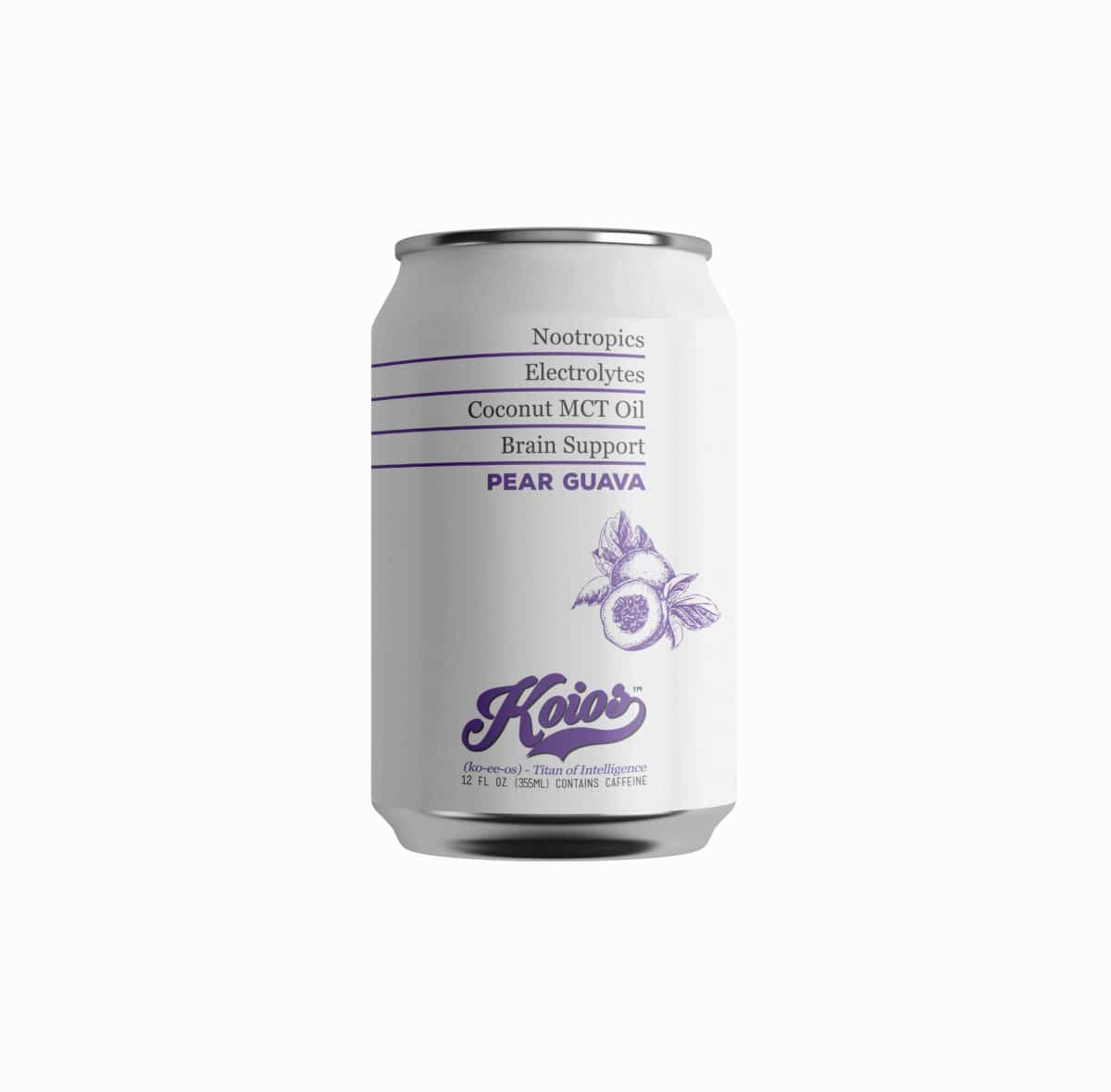
VANCOUVER, B.C. – Koios Beverage Corp. is pleased to announce it has signed a vendor agreement with Walmart Inc, the world’s largest retailer. Walmart Inc. is a multinational retail giant that operates a chain of hypermarkets, discount department stores and grocery stores across the globe. Walmart has more than 11,200 stores operating under 55 banners in 27 countries around the world. It has e-commerce websites in 10 countries. Each week, nearly 265 million customers and members shop at Walmart. “Working with the world’s largest retailer is an honor,” said Koios CEO Chris Miller. “Walmart has begun carving out significant shelf space in select locations to build the next generation of better-for-you brands, and we are truly excited to be one of them. Making the world a healthier place is our mission and our relationship with Walmart will be a tremendous catalyst for reaching a mass audience for our brand.” Koios developed a proprietary nootropic formula that has been shown to enhance brain function, including mental focus, memory and concentration. Its formula includes superfoods such as lion’s mane mushroom, which contains bioactive substances with beneficial effects on the body, brain, heart and gut. The Company produces the formula as a line of healthy, organic beverages and drink powders. Launched last year, the Koios brand had been carried primarily in several health store chains, and various grocery chains until December when GNC – the largest health and wellness company in North America – initiated a vendor partnership. Now, Walmart will soon be adding the Koios beverage line to its new functional beverage set. Initially, Koios products will be available in 1,094 Walmart locations across the United States. The retail giant will carry Pear Guava, Blood Orange and Peach Mango beverages. The products will also be available through Walmart’s online portal at […]
Eve’s Fruit May Slow Memory Loss
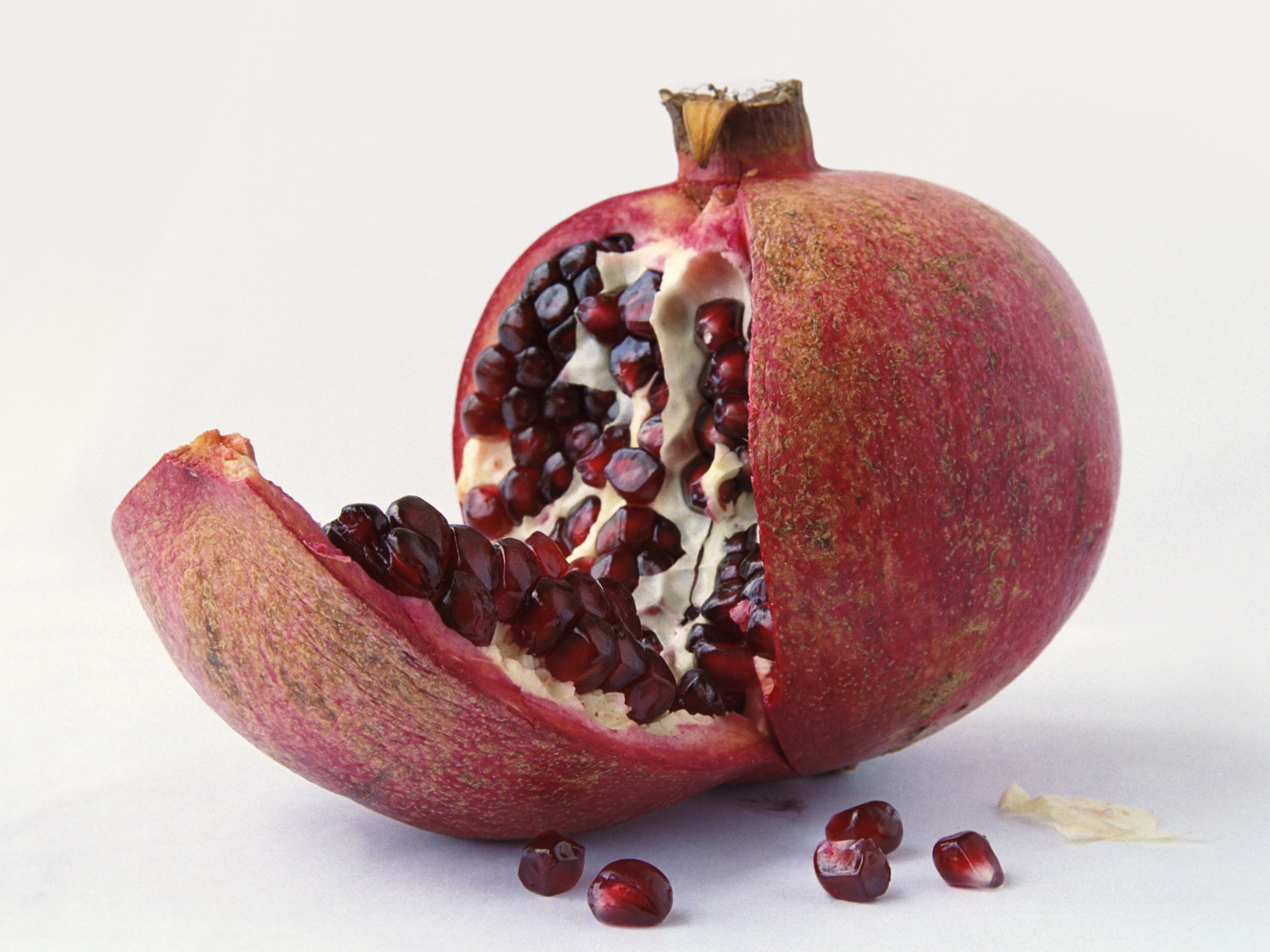
To most Eve’s fruit of temptation was an apple, according to scholars there is every reason to believe the fruit was actually a juicy and delicious pomegranate. This tempting fruit may turn out to be a brain savior, as scientists suggest it appears to put the breaks on age related memory decline. The brain tends to shrink naturally with age, many experience a little forgetfulness as they get older. However in some that decline can happen faster, and be far more serious than anticipated. Approximately 110 million older adults have a memory issue on some level, of one kind or another. It is estimated that 1 million Americans have an official case of mild cognitive impairment or MCI; meaning there is a lot of people with some form of cognitive complaint. Research from UCLA has suggested making pomegranate part of a regular dietary program may help with brain health. Animal studies have already revealed antioxidant rich pomegranates and berries can help with memory. An early double blind study showed after a month of consuming pomegranate juice human subjects had improved visual memory; and functional MRI confirmed the juice caused areas of the brain involved with visual memory to light up. In this new study 261 volunteers between the ages of 50-75 were recruited for the double blind and randomized study, with a range of cognitive abilities from normal to MCI. Subjects drank 8 ounces of pomegranate juice or placebo drink without polyphenols for one year. Two kinds of memory tests were used to track results: a visual learning and retention test using geometric shapes to measure learning, total recall, and delayed recall; and a word recall test using 12 words to measure long term retrieval, total recall, and long term storage. At the end of the study those in […]
Study: Following a choline-rich diet may offer transgenerational protection against Alzheimer’s disease
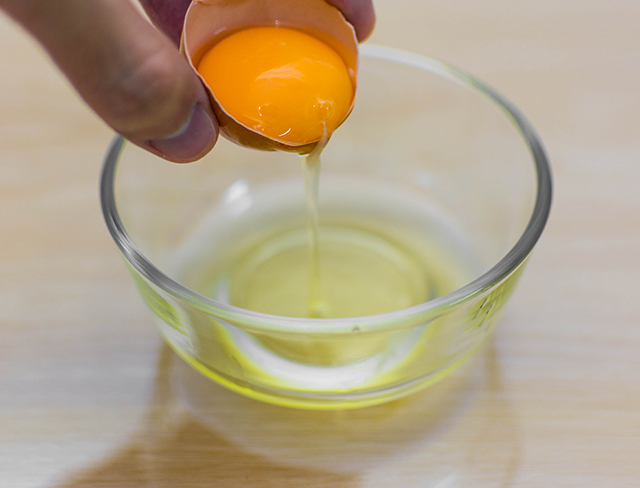
( Natural News ) Nutrients are like instructions, building our cells and telling them how to operate and communicate. These instructions strengthen our genetics, communicating vitality and disease prevention. The lack of nutrition can cause deficiencies in our bodies, damaging cells and bringing the worst traits out of our genes. Research shows that these nutritional instructions can be passed down through genetic code into the next generation. In fact, new research suggests that a maternal diet high in choline can protect future generations from Alzheimer’s, even when dietary choline levels are low in the offspring. The study, from Arizona State University in Tempe and the Translational Genomics Research Institute in Phoenix, AZ, was conducted on mice that were already genetically predisposed to Alzheimer’s disease. One group of mice were fed a diet enriched with choline. The other group did not receive choline supplementation. The researchers bred two generations of mice from the two groups and found differences in their brain activity as they aged. The mice that were born from mothers on choline-rich diets developed fewer disease-associated brain changes. They also exhibited improved memory skills. Even when the descendants didn’t receive choline in their diet, they still enjoyed the benefits of brain protection from their mother’s nutrient-rich diet. Choline’s importance for cellular function, genetics across three generations The human body makes its own choline , but relies on dietary sources to get the full amount needed for healthy cellular functions. Choline, found primarily in fish, eggs, chicken liver, broccoli, nuts, and seeds, is an essential nutrient that helps the brain develop. Choline also protects the structure of cells. This nutrient actually helps other nutrients travel throughout the body. Choline is needed to make acetylcholine, a neurotransmitter that coordinates memory, mood, and muscle control. Mother Nature’s micronutrient secret : Organic […]
Happier and healthier: Curcumin-rich turmeric can help ease depression and anxiety, researchers find
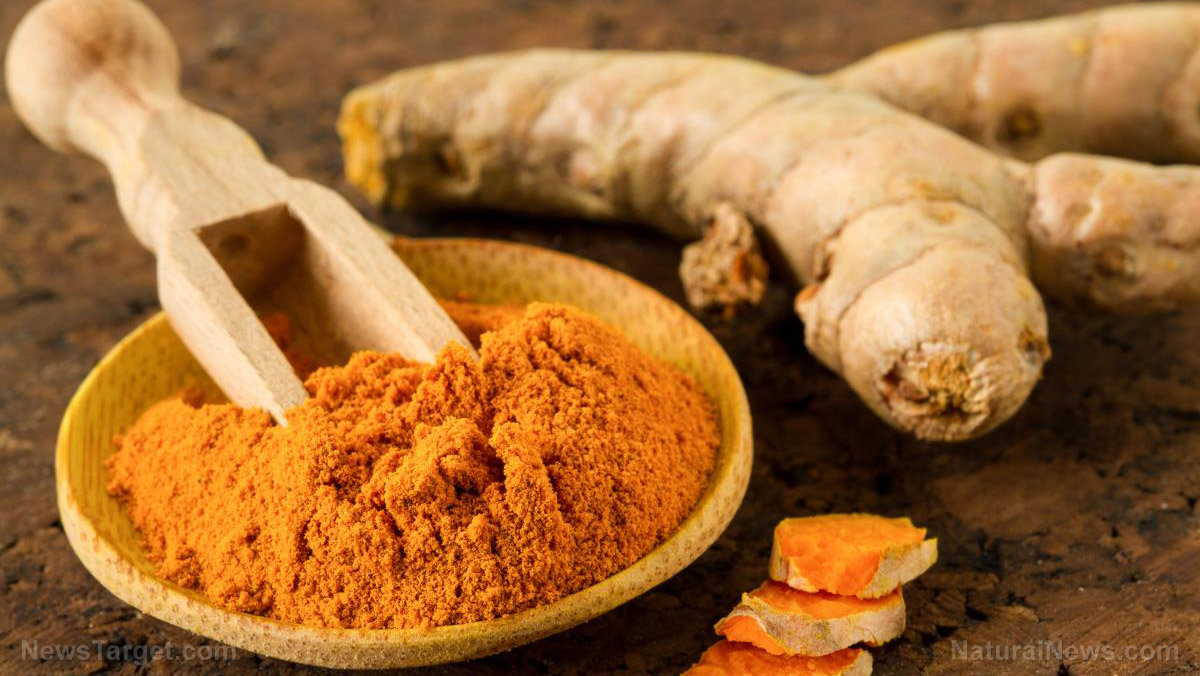
( Natural News ) Arthritis, diabetes, cancer, inflammation… the list of conditions that curcumin can help with is pretty impressive, with many common physical ailments benefiting to some degree from the compound found in turmeric. However, curcumin really puts the “super” in “superfood” by not just enhancing physical health but mental health as well – and we can now add addressing all-too-common conditions like depression and anxiety to its list of accomplishments. A recent study carried out by Australian researchers provides the latest evidence showing how curcumin can treat symptoms of depression and anxiety . The placebo-controlled, double-blind study involved giving 123 participants who had major depressive disorder either a placebo, a high dose of curcumin, a low dose of curcumin, or a combination of saffron and a low dose of curcumin. After 12 weeks of observation, the researchers revealed that curcumin extracts effectively reduced people’s anxiety and depression. While it made significant improvements in both conditions, it excelled at treating depression. Both doses used in the study – 500 and 250 milligrams of curcumin extract twice per day – were found to be effective, but the addition of saffron did not appear to have any effect. How does curcumin help with depression? The researchers believe curcumin has this effect because it elevates the neurotransmitters that help keep your mood stable. Curcumin regulates levels of dopamine and serotonin in the brain, and it also decreases the markers of neuroinflammation, which is significant when you consider that inflammation contributes to mood disorders. It does this by reducing the expression of inflammatory cytokines; it can also reduce levels of the “stress hormone,” cortisol. Curcumin is believed to have the potential to fix disturbances in the HPA axis, which can have a negative impact on sleep and mood. 100% organic essential oil […]
5 Essential oils for energy and focus

If you haven’t already bought into the essential oils craze of the past several years, you may be in the camp of skepticism, but essential oils have been used as a home remedy since nearly the very beginning of civilization. There may not be a ton of scientific evidence to back the various claims about the benefits of essential oils, but anecdotally their usefulness can’t be denied. My own personal introduction to essential oils was, like many people’s, through lavender oil. Lavender oil is said to have calming and sleep-inducing properties and for at least a few years it has worked for those very purposes for my entire family, including my children. Photo: Pexels The benefits of essential oils reach far and wide, and there are a number of different oils that may actually help if you have needs of the opposite variety. Some essential oils are actually very useful in helping people focus and concentrate and some can even provide an awesome all-natural energy boost. Used in conjunction with other healthy lifestyle habits like exercise, eating nutritious foods and getting plenty of rest, oils may be a wonderful addition to your daily routine. Skip the coffee this afternoon and try diffusing or applying these oils instead. Grapefruit. Citrus oils distilled from the rind of fruits like grapefruit, lemon and orange have long been known to improve mood and boost the immune system. Additionally, the tart scent of these oils –especially that of grapefruit — can be a great way to wake up your senses first thing in the morning. You can diffuse it along with other citrus oils or any other complementary scents as you go about your morning routine or apply it directly to your temples with a roller ball. You could even combine it with a […]
7 ways to eat to boost your brainpower, without taking supplements
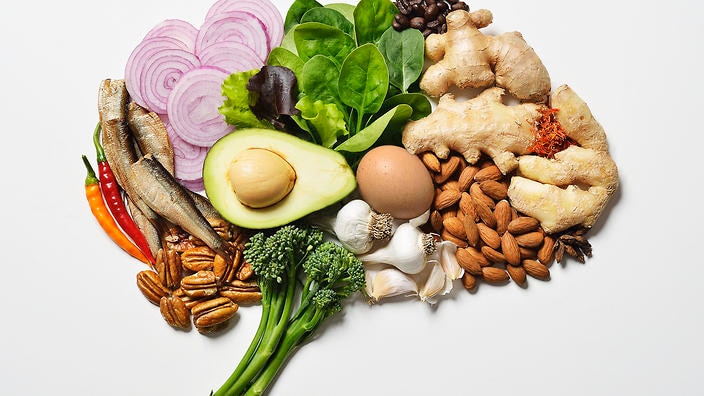
In our recent pursuit to become smarter, faster, a new pharmaceutical market has been born for a type of supplement called ‘nootropics’. Also known as ‘smart drugs’, nootropic supplements promise to enhance your cognition function and supercharge your memory. Take a nootropic pill regularly, marketing claims suggest, and you’ll be able to learn new things, feel more motivated, have better memory recall and boosted concentration rates. Yet the sale of nootropic supplements raises one vital question: do we really need to be taking pills to boost our daily brain performance? “But, for the general population, I believe food should be our main source of our nutritional needs, for all situations including cognitive performance.” Melanie McGrice, a spokesperson for the Dietitians Association of Australia , tells SBS that we don’t need to turn to pills for brainpower. We can boost our memory, concentration and mental performance by eating the right foods: nootropic foods. “Of course, there are always exceptions to the rule: people who are unable to meet their nutritional requirements because they’ve had gastrointestinal surgery, have a food allergy or intolerance, a specific illness or are pregnant,” says McGrice, an Accredited Practising Dietitian. “But, for the general population, I believe food should be our main source of our nutritional needs, for all situations including cognitive performance.” Here are nootropic foods – ‘smart foods’ – that McGrice recommends we eat to maximise our brain’s performance. 1. Caffeine You’ve probably already experienced how a cup of coffee or tea has boosted your mental alertness. But research also suggests that caffeine may be able to improve various memory types. A study conducted by researchers at John Hopkins University shows that caffeine enhances certain memories for at least 24 hours after it is consumed. The research, published by the journal Nature Neuroscience in […]
Study says that sniffing this aromatic herb can increase memory by 75%
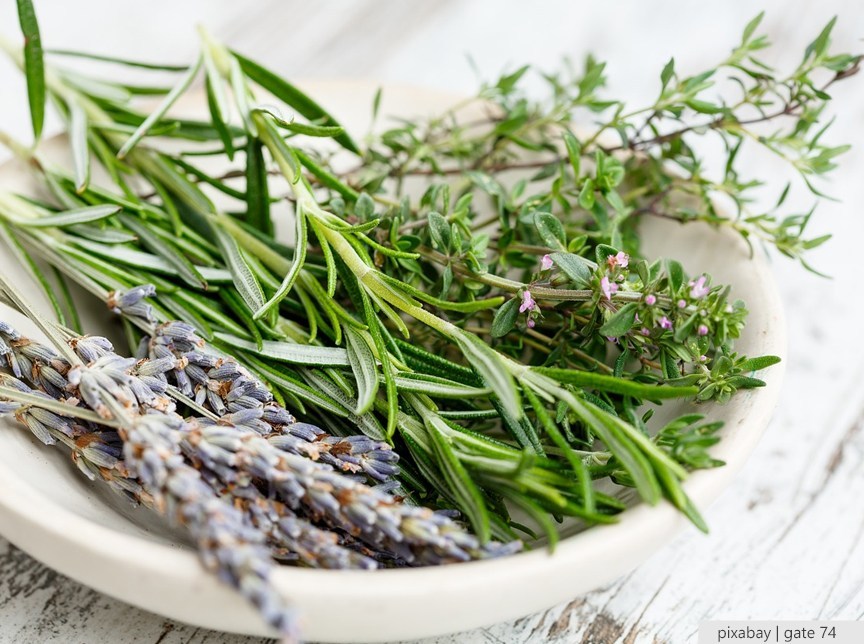
Rosemary, an aromatic evergreen herb, not only smells and tastes good but also carries with it a number of health benefits. Since ancient times, people have benefited from its medicinal properties. One purpose that it serves is how it can boost one’s ability to recall information or events. Records from ancient Greece showed how students would wear garlands made of rosemary whenever they take tests. Now, a recent study by Dr. Mark Moss and researcher, Jemma McCready, confirms that rosemary has the ability to improve memory. But before we dive into the findings of the research, let us first discuss some of the factors that can injure a person’s memory. Free radical damage can cause memory loss, but carnosic acid can counter this. Rosemary has been proven to be highly abundant in this acid, which possesses antioxidative qualities that can help prevent free radicals from damaging the brain. It also has other natural acids that can safeguard DNA and body cells from such damage. Another thing that can negatively affect our memory is the disintegration of acetylcholine, a chemical that plays an inhibitory role with brain cells related to reasoning and memory. Without this chemical, the cells cannot communicate with each other. Rosemary has compounds that can help prevent acetylcholine’s breakdown. The study had 66 participants, and these people were divided into two groups. One group was assigned to a room that was scented with rosemary essential oil, and the other was designated in an unscented room. To evaluate the effects of rosemary and to test their memories, participants were required to memorize and do specific tasks. Those assigned in the room scented with rosemary had a 60% to 75% chance of recalling the instructions given to them as compared to those in the unscented room. The researchers claimed […]
